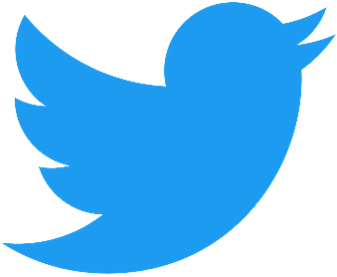Is “Disinformation” the New “Fake News?”
We humans get excited when we find a new word that makes our world make sense. The newest watchword that makes us all feel smart is “disinformation.” Great term. Great concept. But fraught with peril.
We are genuinely awash in disinformation, but just like everything else these days, the disinformation label is in danger of being appropriated. Put differently, will “disinformation” become the child of “fake news,” a partisan battle cry used to nullify things that Trump supporters just didn’t like?
Or is disinformation the new “narcissist,” the latter being a word that psychologists once used to describe seriously anti-social personalities who had no capacity to feel for others? Now, it seems, everyone in psychotherapy has a nemesis their shrink tells them is a genocidal maniac. While we all have narcissistic qualities, we’re not all narcissists. And not everyone who disagrees with us is “gaslighting,” a chic phrase meaning that an opposing party is manipulating you into doubting yourself on false pretenses.
And in a galaxy of data, not everything is disinformation, a term referring to willfully inaccurate supposed facts designed to mislead and cause harm.
We’ve seen mischief with fashionable words before, albeit not on the same level, because social media has launched us into a realm we’ve never experienced.
In the 1980s and 1990s, the term “spin” became one that partisans used to delegitimize the other side’s success. I first remember it being heavily wielded in the early 1980s when Democrats were aghast at Ronald Reagan’s resurgence when the recession ended in late 1982. The term “spin doctor” mainstreamed around that time. The bull market on “spin” roared back into fashion when Bill Clinton handily survived the Monica Lewinsky scandal in the late 1990s, the message being that Clinton’s popularity was due to a Jedi mind trick. Wasn’t it possible that Reagan and Clinton were popular because people liked them and things were pretty good? Must it all have been the result of engineering by diabolical spin doctors?
Indeed, Trump is congenitally dishonest; however, is it right to conclude that his popularity was because he was fooling people against their will? Or was Trump elected — and maintains a huge base to this day — because a considerable swath of the population has an extremely accurate appreciation of what he stands for and likes it, lies and all?
There are other examples of what’s been called disinformation that may just be what I’ll call “inconvenient news.”
At Covid’s onset, the notion that the virus may have been spread from a Chinese lab was labeled “misinformation,” a cousin of disinformation meaning something inaccurate disseminated without malice. The lab theory was framed by many as being racist but is now a viable aspect of mainstream opinion, although nobody still knows for sure.
The American security establishment leaders– John Brennan and James Clapper — went on cable news before the election saying the Hunter Biden tape was “classic Russian disinformation.” A year and a half later, the New York Times says it’s “authentic.”
Much of what we deem to be disinformation lies in fundamental human biases.
The legacy media invariably finds credible plaintiffs’ lawyers, NGOs, labor unions and short-sellers to leverage them to build their coverage with little resistance as to their agendas. However, when their industry targets attempt to defend themselves with studies from think tanks and academia, they find themselves with investigative journalists descending upon them because they funded studies so that they could participate in public debate.
Journalist Glenn Greenwald (among others) recently reported that a Washington Post reporter complained about being harassed and criticized for her news coverage. However, this same reporter publicly exposed (or “doxed”) the creator of Libs of TikTok, a pseudonym of a TikTok user who re-posts outrageous but genuine items posted by some pretty radical folks. The Post not only published “Libs’” real name but showed up at the homes of her relatives to interrogate them.
Going forward, we’ll need to wrestle with the big question: Do we really support free speech or just our free speech? With billionaire Elon Musk’s purchase of Twitter, the internet is ablaze with claims that disinformation will run amuck on the platform given Musk’s free speech agenda. We don’t know precisely what Musk will do with the platform, but this isn’t a man who is very concerned about being loved at Upper West Side gatherings.
As we’ve seen since the emergence of the internet, just because a platform theoretically welcomes a diversity of opinion, it doesn’t mean that the public is genuinely interested in that diversity. If past is prologue, we are likely to get two bi-polar peaks of vitriol, with one side shouting “disinformation!” and the other answering “fake news!”


